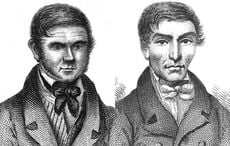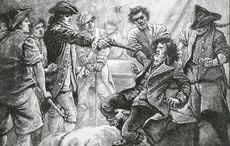Findmypast is working in partnership with IrishCentral to share fascinating insights into your Irish ancestors. Click here to get a special half price subscription, and discover your Irish roots today!
What can you do, if you know the name of the Irish ancestors you’re searching for, but can’t find any relevant records online?
1. Always search across all variant spellings of your family name
This is the golden rule! Unless your ancestors left signed documents or letters, any historic document in which your family name is recorded, was probably written down by a clerk or other public official. So ignore the fact that your family have always written Ford with an ‘e’ at the end or Fitzsimons using a double ‘m’. More often than not, your ancestor’s names were recorded phonetically, or using the most common spelling of the name. A common example is where the name Matthews is spelt Mathis.
2. Search shortened versions of forenames to find your ancestors
Historically Irish people used diminutive versions of their names for everyday use (eg: Kate, Katie), and formal versions of their names for ‘official’ events (Catherine, Katherine, Kathleen).
3. Remember to search for Irish or Latin versions of names
Different languages can also ‘hide’ the version of your ancestor’s name that you’re most familiar with. Use Sean, Eoin and Eugene when searching for John; Dermot and Digby for Jeremiah; Anna, Hannah and Johanna are often used interchangeably, even in the same records.
4. Look out for constant change in how a surname is spelt
Don’t expect that your family name will remain the same across generations and continents. Just imagine what an immigration clerk in the Port of New Orelans may have heard when a native Irish speaker turned up with only a few words of English and gave their name.
5. Be smart in how you approach your research
Finally, god loves a trier, but using the tools at your disposal will aid your research even more. Check out the ‘name variants’ in online search-engines; use the wild-card characters (*= an asterix) for alternate letters; and limit your search by setting a time-frame of events.
For more stories on tracing your Irish heritage from Findmypast click here.




Comments